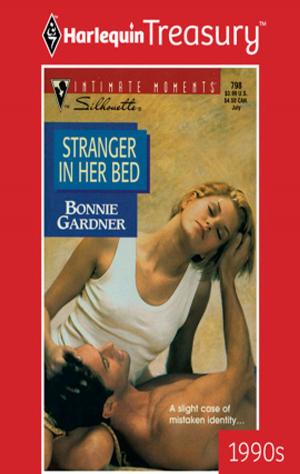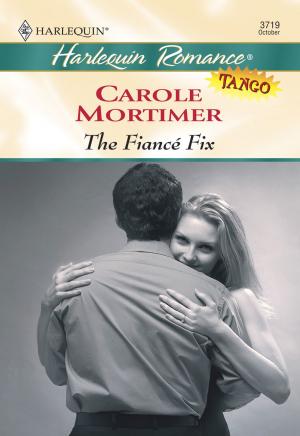| Author: | Eddie Kurtz | ISBN: | 9781476201290 |
| Publisher: | Eddie Kurtz | Publication: | July 5, 2012 |
| Imprint: | Smashwords Edition | Language: | English |
| Author: | Eddie Kurtz |
| ISBN: | 9781476201290 |
| Publisher: | Eddie Kurtz |
| Publication: | July 5, 2012 |
| Imprint: | Smashwords Edition |
| Language: | English |
The Community Café in the mythical Townsville-- is a restaurant, bar, and, at night, sometimes music club. Over 30 years, the "CC," as it’s referred to by its fans, gradually becomes a city institution, and the neighborhood becomes more upscale and populated by people gentrifying the area. It’s beloved in the community as a part of the cultural life of the city, and well known as a hang-out place for various artists and musicians, and unofficial counseling parlor for many people who have become regulars over the years. In short, it’s a wonderful joint, and a place where you feel right at home the moment you walk in.
Bob and Winnie are ready to celebrate the 30th anniversary of this cultural landmark. They’re old hippies who started and have nurtured the CC since it began, and are personally great people, but not so great business managers. Jason, their straight-arrow, Republican son with a good business mind, is returning with his MBA, ready to help them with their financial mess, and make the business a success. While the property has gradually become more and more valuable over the years, Bob & Winnie have used its increasing value as leverage and collateral to take out loans to send their son to college, and keep the business going when times got lean.
A crisis unfolds as the CC’s financial state becomes critical and a new banker threatens to close them down, if they don’t make a substantive loan payment. Their former banker, who lways treated them well, and tried to help when needed, has been bought out by a much larger financial institution, Grand Financial, which cares only about the bottom line. The new bank officer, Harold Herod (pronounced Hero’) informs them that they are very delinquent in payments and owe the bank almost thirty thousand dollars. If they can’t bring the loan up to date, he may close them down, and take back the property as a severe loss. With Bob and Winnie’s son, Jason, returning home after getting his MBA, it's assumed he will become the new business manager of the “CC,” and hopefully save the place by bringing it to financial health. Can he, and his parents, friends, and supporters from all around the city save this important and beloved institution before it goes down?
They decide to have a large fund raiser to get the cash needed quickly. They see a story in the press about an old, and mostly forgotten, 60s protest folk singer, Brick Berton, who is trying to stage a musical comeback after years in obscurity, occasional institutionalization, and on-going treatment for alcoholism and being just plain crazy. Brick is most famous for his one shot hit in the 60s, a protest song against the Vietnam war: Going Down the Drain. They contact Brick and he agrees to stage his first comeback concert as the headliner for the CC's fundraiser. After the tickets are sold and the stage is ready, Brick finally lands in town, but falls prey to Herod and his evil ways and partners in malice, who want the fundraiser to fail, giving them back the property. With their urging, the formerly dried out Brick gets stinking drunk before showing up for the gig. Only minutes into the concert, he passes out from the stage, setting off a wild train reaction that lands them all in jail.
In jail, they are confronted again with a distasteful, but easy way of eliminating their problems: sell out to a national coffee chain, and become a new cultural entity in a familiar corporate model. As the trouble engulfing them becomes more severe and threatening, they reluctantly agree to sell the CC, and, in a sense, their souls, to make things right.
In the end, the evil ways of the banker are exposed and punished, help arrives from unexpected directions, and they are able to hold on to their life’s mission, gain the respect of their friends and children, and examine what kind of people they were in their old, hippy days, and what kind they are now.
The Community Café in the mythical Townsville-- is a restaurant, bar, and, at night, sometimes music club. Over 30 years, the "CC," as it’s referred to by its fans, gradually becomes a city institution, and the neighborhood becomes more upscale and populated by people gentrifying the area. It’s beloved in the community as a part of the cultural life of the city, and well known as a hang-out place for various artists and musicians, and unofficial counseling parlor for many people who have become regulars over the years. In short, it’s a wonderful joint, and a place where you feel right at home the moment you walk in.
Bob and Winnie are ready to celebrate the 30th anniversary of this cultural landmark. They’re old hippies who started and have nurtured the CC since it began, and are personally great people, but not so great business managers. Jason, their straight-arrow, Republican son with a good business mind, is returning with his MBA, ready to help them with their financial mess, and make the business a success. While the property has gradually become more and more valuable over the years, Bob & Winnie have used its increasing value as leverage and collateral to take out loans to send their son to college, and keep the business going when times got lean.
A crisis unfolds as the CC’s financial state becomes critical and a new banker threatens to close them down, if they don’t make a substantive loan payment. Their former banker, who lways treated them well, and tried to help when needed, has been bought out by a much larger financial institution, Grand Financial, which cares only about the bottom line. The new bank officer, Harold Herod (pronounced Hero’) informs them that they are very delinquent in payments and owe the bank almost thirty thousand dollars. If they can’t bring the loan up to date, he may close them down, and take back the property as a severe loss. With Bob and Winnie’s son, Jason, returning home after getting his MBA, it's assumed he will become the new business manager of the “CC,” and hopefully save the place by bringing it to financial health. Can he, and his parents, friends, and supporters from all around the city save this important and beloved institution before it goes down?
They decide to have a large fund raiser to get the cash needed quickly. They see a story in the press about an old, and mostly forgotten, 60s protest folk singer, Brick Berton, who is trying to stage a musical comeback after years in obscurity, occasional institutionalization, and on-going treatment for alcoholism and being just plain crazy. Brick is most famous for his one shot hit in the 60s, a protest song against the Vietnam war: Going Down the Drain. They contact Brick and he agrees to stage his first comeback concert as the headliner for the CC's fundraiser. After the tickets are sold and the stage is ready, Brick finally lands in town, but falls prey to Herod and his evil ways and partners in malice, who want the fundraiser to fail, giving them back the property. With their urging, the formerly dried out Brick gets stinking drunk before showing up for the gig. Only minutes into the concert, he passes out from the stage, setting off a wild train reaction that lands them all in jail.
In jail, they are confronted again with a distasteful, but easy way of eliminating their problems: sell out to a national coffee chain, and become a new cultural entity in a familiar corporate model. As the trouble engulfing them becomes more severe and threatening, they reluctantly agree to sell the CC, and, in a sense, their souls, to make things right.
In the end, the evil ways of the banker are exposed and punished, help arrives from unexpected directions, and they are able to hold on to their life’s mission, gain the respect of their friends and children, and examine what kind of people they were in their old, hippy days, and what kind they are now.















